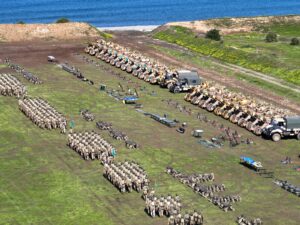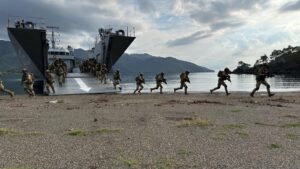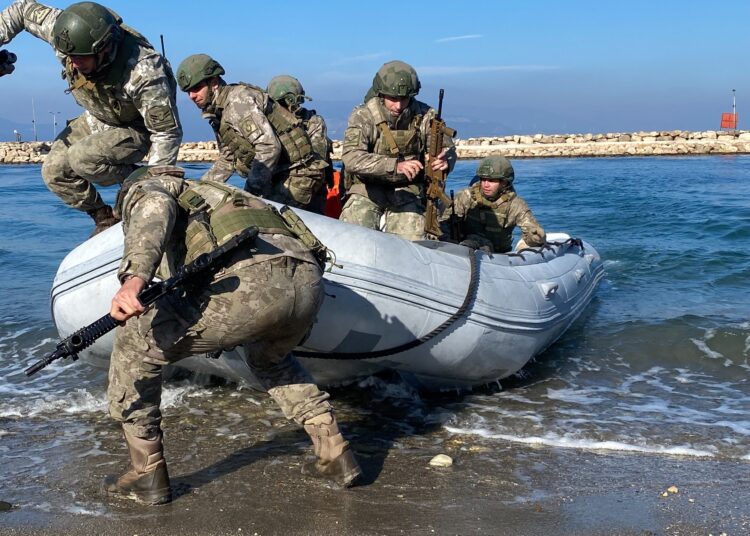Abdullah Bozkurt/Stockholm
Greece and Cyprus have been identified as the top two countries requiring vigilant monitoring for early signs of military activity, due to allegations of posing risks and threats to Turkey’s national security.
According to a secret military document obtained by Nordic Monitor, Greece and Cyprus are at the top of the list of countries from which Turkey needs to gather military, political, social, economic, transportation, communication, scientific and technological intelligence, even during peacetime.
The intelligence collected from multiple sources by the General Staff Intelligence Directorate (Genelkurmay İstihbarat Başkanlığı) will be evaluated by General Staff headquarters to determine “the capabilities, readiness or military alert status, activities, intentions, objectives, and/or movement direction of potential enemy armed forces.”
The stated goal is to enable Turkey to take early measures to neutralize perceived threats and risks through advanced preparations, allowing the government ample time to make decisions and keeping policymakers regularly updated with weekly intelligence briefs.
The guidelines, compiled in a 58-page classified document titled “Turkish Armed Forces’ (TSK) System for War Indications and Warning” (Harp Emareleri ve İkaz Sistemi, HEİS), are simplified with a matrix of color coding and geometric signs to ensure easier understanding of threats originating from Greece and Cyprus, among other countries and groups monitored by Turkey.
Cover page of classified document titled “Turkish Armed Forces’ (TSK) System for War Indications and Warning” (Harp Emareleri ve İkaz Sistemi, HEİS):
In this matrix, a green circle symbolizes a normal situation where there is no threatening environment, and risks are deemed to be within normal limits.
A yellow square indicates an above-normal level, signifying a potential crisis, risk or threat. An orange triangle represents a situation where the activity level is significantly above normal, potentially leading to a probable crisis, risk or threat.
A red diamond symbolizes an extraordinary situation with extreme levels of activity, indicating that a crisis, risk or threat is imminent or ongoing. Lastly, a black star describes uncertainty due to insufficient information to assess the risk level, used particularly when the situation is abnormal but cannot be precisely classified.

The guidelines document provides a sample of how this coding is applied to Greece and Cyprus. The general assessment for Greece was coded with a yellow triangle, suggesting a potential crisis and risk. The assessment was divided into two subcategories: external and internal evaluations, analyzed according to political, socioeconomic and military criteria. Only the external military posturing of Greece was coded with a yellow square, while the rest is marked with a green circle.
Threat matrix sample with color coded signs for Greece and Cyprus in the classified document:
The general assessment for Cyprus was marked with an orange triangle, indicating greater risks to Turkey’s national security. Domestic political developments and Cyprus’s external military activities were marked with a yellow square.
The same color/shape coding matrix was also applied to predict the next 90 days of the threat assessment, in addition to past and present evaluations. According to a sample table included in the document, the general assessment for the future projection for both Greece and Cyprus was marked with a yellow square, indicating that Turkey considers them to pose threats and risks to its national security.
Although the matrix applied to these countries was marked as a sample, which may indicate that the actual classification for Greece and Cyprus could differ, it nevertheless sheds light on the thought process that went into preparing the guidelines.
The document was signed by Hulusi Akar, the then-chief of general staff, who later became defense minister. He is currently chairman of the parliamentary Defense Committee. The document was dated April 2016 and is considered to be an upgraded and newer version of similar guidelines adopted in 2003.
Explanation of the meaning of color and symbols in the threat assessment intelligence report:
Akar ordered the destruction of all copies of the earlier version and ordered that limited copies of the current version be distributed to select military units as well as Turkish intelligence agency MIT and the foreign and interior ministries under strict confidentiality and on a need-to-know basis.
The guidelines were stated to be binding on military attachés stationed abroad as well. It was noted that the intelligence gathered by Turkish military attachés must be transmitted to their superiors to contribute to the pool of intelligence collected at General Staff headquarters. They recommended utilizing all methods of intelligence gathering, including signal, human, imagery and open-source intelligence (SIGINT, HUMINT, IMINT and OSINT).
The guidelines were partially developed by adapting the NATO Intelligence Warning System (NIWS) for standardization of the indicators, which is ironic considering that Greece is Turkey’s NATO ally.
The Intelligence Directorate issues a weekly evaluation report titled the “War Warning Report” (Harp İkaz Raporu), identifying which countries present what level of threat and risk to Turkey’s security. The General Staff Armed Forces Command and Operations Center (SKKHM), a critical institution that plans and executes military operations, bases its planning on these reports.
The criteria developed to assess a specific country appear to be highly specific. In terms of domestic political and governance indicators, the Turkish military identified 97 activities to be used for making assessments on that front. The number of indicators for socioeconomic and military areas are 57 and 43, respectively.

As for the external indicators, the guidelines listed dozens of criteria, which included international propaganda and securing political support from other countries. Violations of airspace and territorial waters, establishing contact with foreign military leaders, forming allied task forces, receiving external military support and intelligence coordination with foreign intelligence services were also listed as criteria that would be used in developing a risk matrix for Greece and Cyprus.
Turkey and Greece have been at odds on a number of issues, including conflicting claims over territorial waters in the Aegean, the status of the Turkish Muslim minority in Western Thrace and the status of some islands, islets and rock formations. Despite recent high-level visits between the two countries, the fundamental issues at the bilateral level remain unresolved.
Turkish President Recep Tayyip Erdogan visited Greece on December 7, 2023, six years after his last visit, in what was seen as a charm offensive in diplomacy amid Ankara’s troubled relations with the West and deepening economic problems at home. During the visit the two sides signed the Athens Declaration on Friendly Relations and Good-Neighborliness in which they stressed their commitment to fostering friendly relations, mutual respect, peaceful coexistence and understanding.

Greek Prime Minister Kyriakos Mitsotakis paid a visit to Turkey on May 13, 2024 as part of ongoing political dialogue and confidence-building measures with his Turkish counterpart.
Turkey maintains over 30,000 troops on the divided island of Cyprus and is pushing for a two-state solution to have the breakaway Turkish Republic of Northern Cyprus (KKTC), established in 1983, recognized globally as an independent state. The decades-long peace talks between Greek and Turkish Cypriots have not resolved the outstanding issues, with the last UN-backed initiative failing in 2017.
Turkey and Cyprus have disagreements over the island’s exclusive economic zones in the eastern Mediterranean and conflicting views on exploiting hydrocarbon reserves. Ankara has also taken further steps in recent years to change conditions on the ground, announcing the reopening of part of the fenced-off area of Varosha (Maraş in Turkish) in October 2020. Further steps for Varosha were announced in July 2021, prompting condemnation from the UN Security Council.
Turkey’s relations with Greece and Cyprus have often been a focus of domestic political debate in Turkey, where politicians from ruling and opposition parties often exploit them to advance their political objectives, rally their supporters and attract votes in election campaigns.












